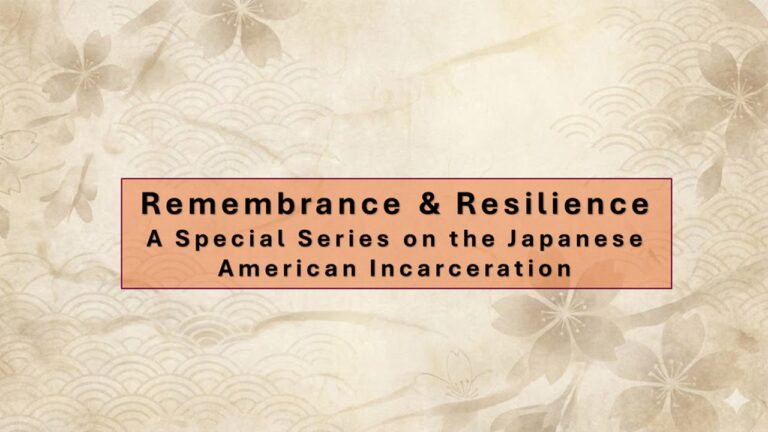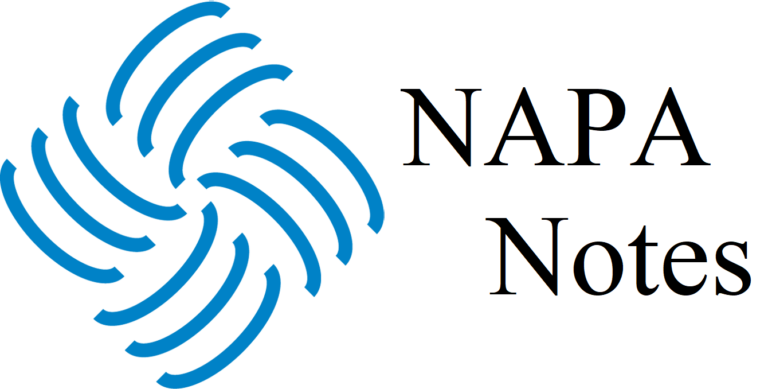National Association for the Practice of Anthropology
sNAPAshots: Chad Morris

This work is licensed under a Creative Commons Attribution-NonCommercial-ShareAlike 4.0 International License.
0:00
[NAPA Logo]
Interviewer 0:11
Welcome to sNAPAshots: Conversations with Practicing, Professional, and Applied Anthropologists. Let’s meet our first guest of Season Two: Chad Morris.
Chad Morris 0:23
I’m Chad Morris. I am an applied medical anthropologist and happen to be NAPA’s treasurer. I am professor of anthropology at Roanoke College in Salem, Virginia.
Interviewer 0:35
How did you get interested in anthropology?
Chad Morris 0:38
When I came out of high school, I was going to be a medical doctor. That was the goal. And so all the way through to takings of the MCAT, 13 medical school applications, a number that should have seemed ominous at the time, I discovered that medicine wasn’t for me. I went into an Applied Medical Anthropology program at the University of Memphis, and really never looked back. Right, I found a discipline that that not only allowed me that possibility of making a difference in terms of community health, but also a discipline that allowed me to teach doctors as I pursued the academic path. And so that, for me has been so much more rewarding for who I am as a person than a career as a physician would have been, and probably better for the public too.
Interviewer 1:28
How has the anthropological mindset enhanced your contribution to your workplace?
Chad Morris 1:32
It’s interesting, I think that as anthropologists, we are trained to be never satisfied with one perspective. Right? You know, it is incumbent on us to understand multiple perspectives around a given topic. So for instance, I just recently rotated off eight years as director of the Honors Program at my college. And what I learned in that is, is that to run an honors program successful, you’ve got to think all at once about multiple constituencies, right? There are multiple campus constituencies, Dean’s office, student life, that sort of thing. But also admissions, also community representatives, providing opportunities for students. And so anthropologists thrive in a moment where there are lots of different ideas coming together, sometimes at odds with each other, but lots of different ideas and opportunities coming together. I think our training uniquely allows us to thrive in that sort of environment. The other thing it does though, is it is it makes us less than satisfied with dichotomy. We live in a pretty dichotomous world, you feel that way, or you feel the other way, anthropologists tend to break that dichotomy down in some really impressive ways. And, and as we look inwardly, I’m a little bit of an example of that, I think. We speak so much about a difference between practicing and academic anthropologists. I work in an academic setting, my paycheck comes from there, but I do that as part of a small liberal arts setting, because I am able then to move into communities such as a community in Palau, where we’re doing health work, to help create community change.
Interviewer 3:08
What types of industry challenges do you get to help solve with this anthropological lens?
Chad Morris 3:13
You know, I’ve always viewed my role as an anthropologist not to be a creator of ideas, but a bringer of ideas. Right. When I go into a community, very often I’m speaking with folks, for instance, in a Ministry of Health or that sort of thing, who, who have a desire to know what the community thinks, and that desire is earnest. The community may not always like right what they’ve been getting from the ministry, but when I when I work with people one on one, the desire to know what the community thinks is important. That’s very different than the desire to know what the American who lives a few 1000 miles away thinks, right. And so I think humility is important in our toolkit as as anthropologists, right. And so then the fun I get to have in a place like Palau is I get to set up my research first and foremost, in a longitudinal fashion. I told Palau when I started there in 2010, I will be here only as long as you want me here. But I’ll be devoted to being here for that long, right? I am not restrained at a small liberal arts institution by a three year grant or that sort of thing. I am able to continue bringing students continue doing positive, sustainable work in that community, it may not be as quick and well funded as an R01 grant might might provide, but it does allow for that longevity, that I think is a hallmark of of what we do as anthropologists. So, as I do that, I am able to what we do is as chameleons, right? We walk into a community, and we start meeting people and we start interacting with people and we start figuring out, okay, who feels this way about these folks and vice versa? And how is that changing over time with new challenges such as COVID-19 and and, you know, new new leadership and new perspectives. And we work within all of that, to continue to try to elevate the value of law core ideas toward creating that positive, sustainable change we’re looking to create.
Interviewer 5:06
What do you wish you were told about anthropology before entering the discipline?
Chad Morris 5:10
I was very fortunate once I started at Memphis to be encouraged to go to both SfAA and AAA conferences. And and so my vision of anthropology was was, was an army of educated and culturally aware people who somehow show up at conferences and self identify, right? That’s not who we are, particularly the more work I do in practicing anthropology. There are very few anthropologists with that word on their business card, right, and, and so, on one hand, that’s a plus. Right? Well, you never know where you’re going to find them. So again, we’re chameleons, we fit in, but on the other hand, the fact that we don’t always self identify, I think robs us of some opportunity for collaboration robs us of some opportunity for advancing our discipline, helping everyone in our discipline, understand all of the domains of application in which we work, and what our understanding of the human existence in those domains of application brings to the table for our overall science. So I think there’s a lot of opportunity there to, to encourage anthropologists to self identify more to encourage them to, to engage more with their discipline, but I also understand the sins of our fathers and the fact that our discipline hasn’t always done as much as it potentially can to engage with practicing professional and applying anthropologists in particular.
Interviewer 6:34
How did anthropology show up in your early life?
Chad Morris 6:38
I’m a kid who grew up in Kentucky and Ohio, we are talking about low diversity places, right. And and so, you know, my upbringing did a lot for me, but it did not afford me the opportunity to even leave the country until I was an undergrad. And I’m not sure the Bahamas counts. And and so the, for me, I didn’t discover anthropology early, I discovered it all at once, because I happen to, you know, choose the right box and undergrad and happened to be placed into that class. But what I was able to discover, and what I learned to find joy in very quickly, was that unknown was that which I had not yet seen. And I think that anthropology consistently provides us opportunities to do that it changes the way that we look at the world, it opens our desire to see the world. What I did get from my sort of white bread, Kentucky and Ohio upbringing, was was a strong desire to create positive, sustainable change. Right, that explains why I wanted to be a physician coming out of coming out of high school, right? And really, frankly, coming out of junior high, right? And so what anthropology has done is it’s given me the means to apply that desire for positive, sustainable change that desire to help people, right, it gives me tools that let me do that. And in my case, it let me train a lot of other people to do that as well. And that’s incredibly gratifying to me. So I would say you don’t have to be someone who, who grew up in a in a globe-hopping uber-diverse place in order to become an anthropologist. In fact, sometimes, reserving that joy for later seems to work out pretty well.
Interviewer 8:20
Thank you, Chad, for sharing your experience as a practicing medical anthropologist. For more sNAPAshots Find us at practicing anthropology.org Mehta, LinkedIn and Twitter.
Save the date join NAPA at the careers expo November 10, 2023 in Toronto, Canada. See you there!
Credits 8:35
[On Screen Text] PRODUCED BY Niel Tashima, Cathleen Crain, Joshua Liggett
DIRECTED BY Reshama Damle, Suanna Crowley
MUSIC BY BY Alex Productions “hot pepper”
CREATIVE LEAD Mikaela Williams
Many Thanks to NAPA’s Governing Council for supporting sNAPAshots
Conversations with Practicing, Professional, and Applied Anthropologists
NAPA is a section of the American Anthropological Association
Join us in person at the Careers Expo in Toronto, CA November 10 2023!
NAPA is seeking volunteers to join the sNAPAshots project. We’d love to hear
from YOU! Contact us at: ntashima@ ltgassociates.com
Chad Morris 8:35
The outtakes at the end of the DVD. This is great.
Interviewer 8:46
Well, if you stay and you watch we do have we have the blooper reel at many of the ends of of our clips.
8:46
[NAPA Logo]
Interviewer 9:01
sNAPAshots
Transcribed by https://otter.ai



![[NAPA Logo] sNAPAshots: Conversations with Professional, Practicing, and Applied Anthropologists. Rosalie Post, Design Anthropologist, Co-founder of NAMLA. PracticingAnthropology.org Bluesky, X, Meta, LinkedIn, and Youtube Logos](https://practicinganthropology.org/wp-content/uploads/Rosalie-Post-LinkedIn-Flyer-768x768.jpg)